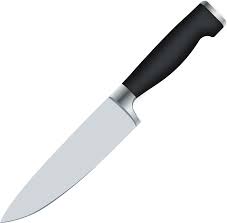记忆方法
将“knife”与“knifely”这个简单的助记词结合,即想象“knife”是锋利的(knifely),这样可以帮助记忆其表示“刀”的含义。
以上内容由AI生成, 仅供参考和借鉴
中文词源
knife 刀,匕首
来自古英语cnif,刀,匕首。
英语词源
- knife
-
knife: [11] Knife is not a native English word, but a borrowing. It came from Old Norse knífr, which survives also in modern Swedish knif and Danish knif. It can be traced back to a prehistoric Germanic *knībaz, which also produced German kneif ‘cobbler’s knife’, and was borrowed by French as canif ‘knife’, but its previous ancestry is not known.
- knife (n.)
- late Old English cnif, probably from Old Norse knifr, from Proto-Germanic *knibaz (cognates: Middle Low German knif, Middle Dutch cnijf, German kneif), of uncertain origin. To further confuse the etymology, there also are forms in -p-, such as Dutch knijp, German kneip. French canif "penknife" (mid-15c.) is borrowed from Middle English or Norse.
- knife (v.)
- 1865, from knife (n.). Related: Knifed; knifing.
权威例句
- 1. She produced the knife during arguments with her friends.
- 在和朋友争吵的时候,她掏出了刀。
- 2. The knife stuck in the ground at his feet.
- 刀扎在了他脚边的地上。
- 3. His surgical instruments were a knife and a pair of pincers.
- 他的外科手术器械是一把刀和一把钳子。
- 4. He picked up the knife and gave it to me.
- 他捡起刀子递给我。
- 5. Lightly score the surface of the steaks with a knife.
- 在牛排表面轻轻打花刀。

